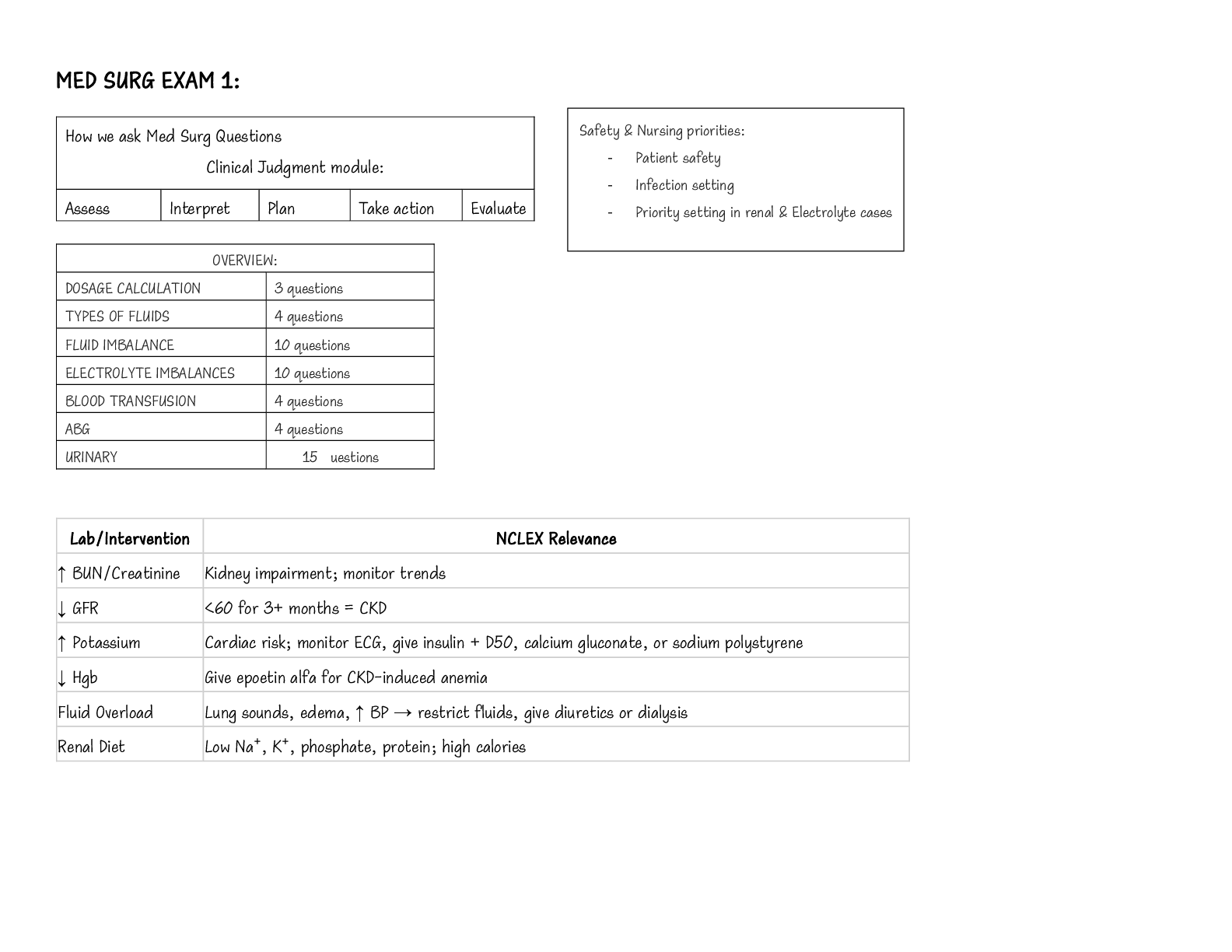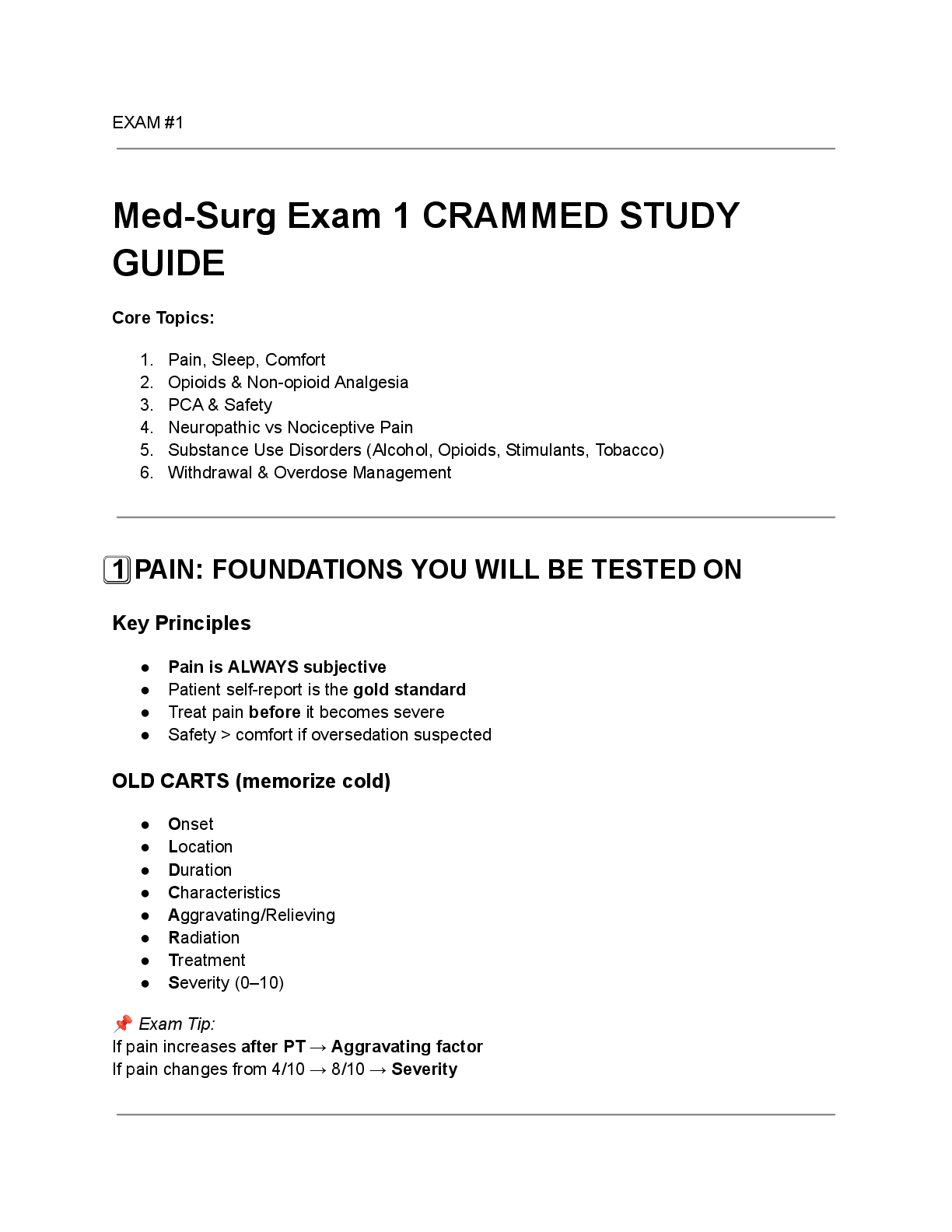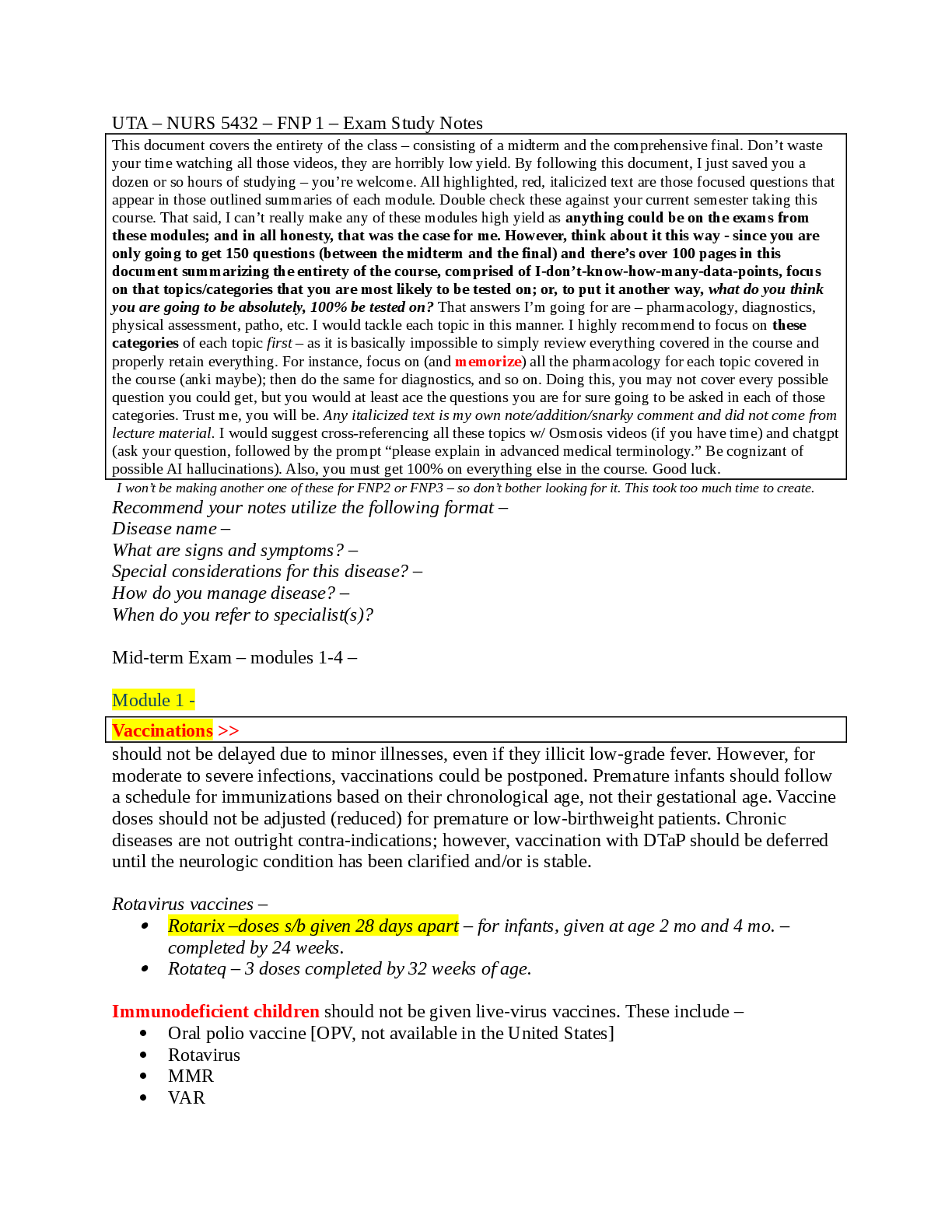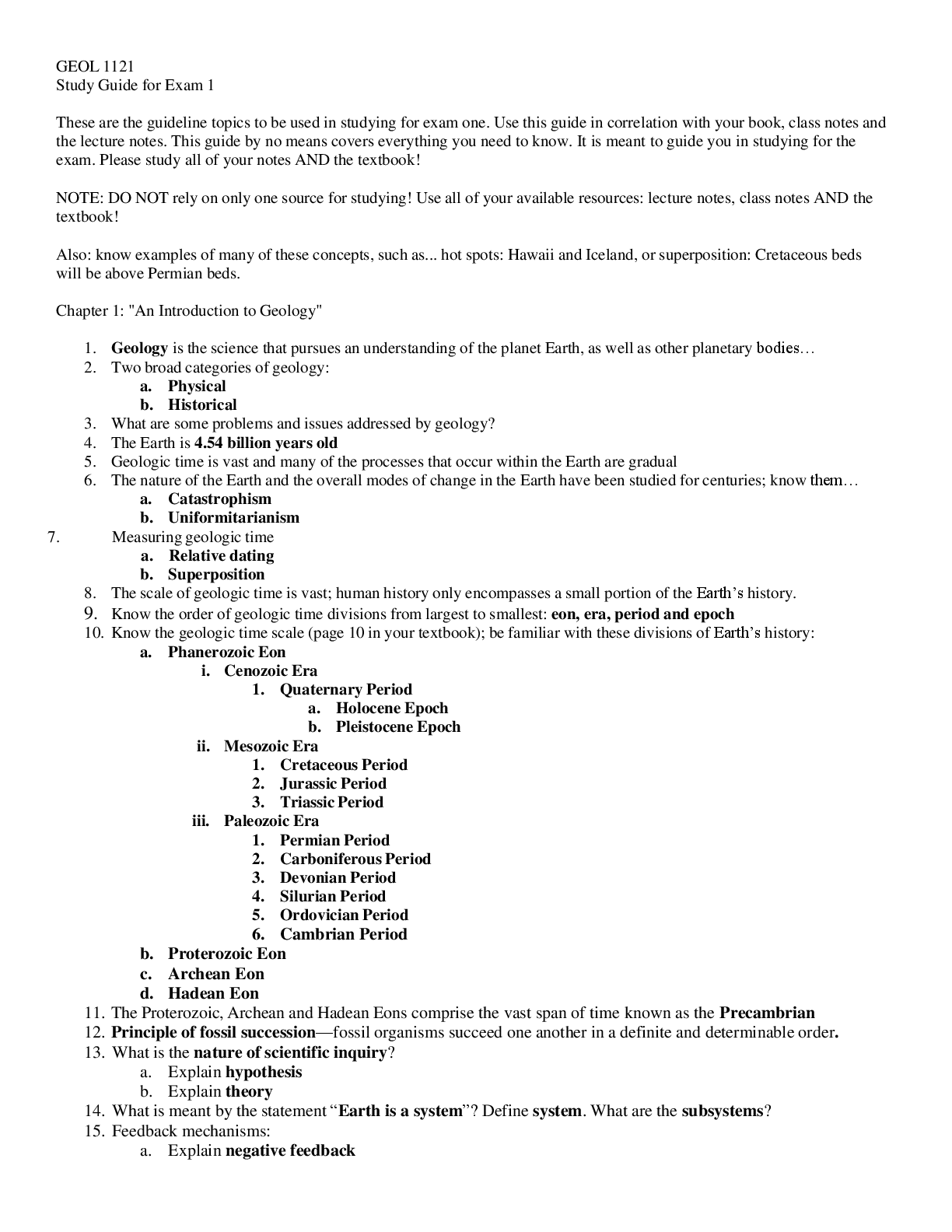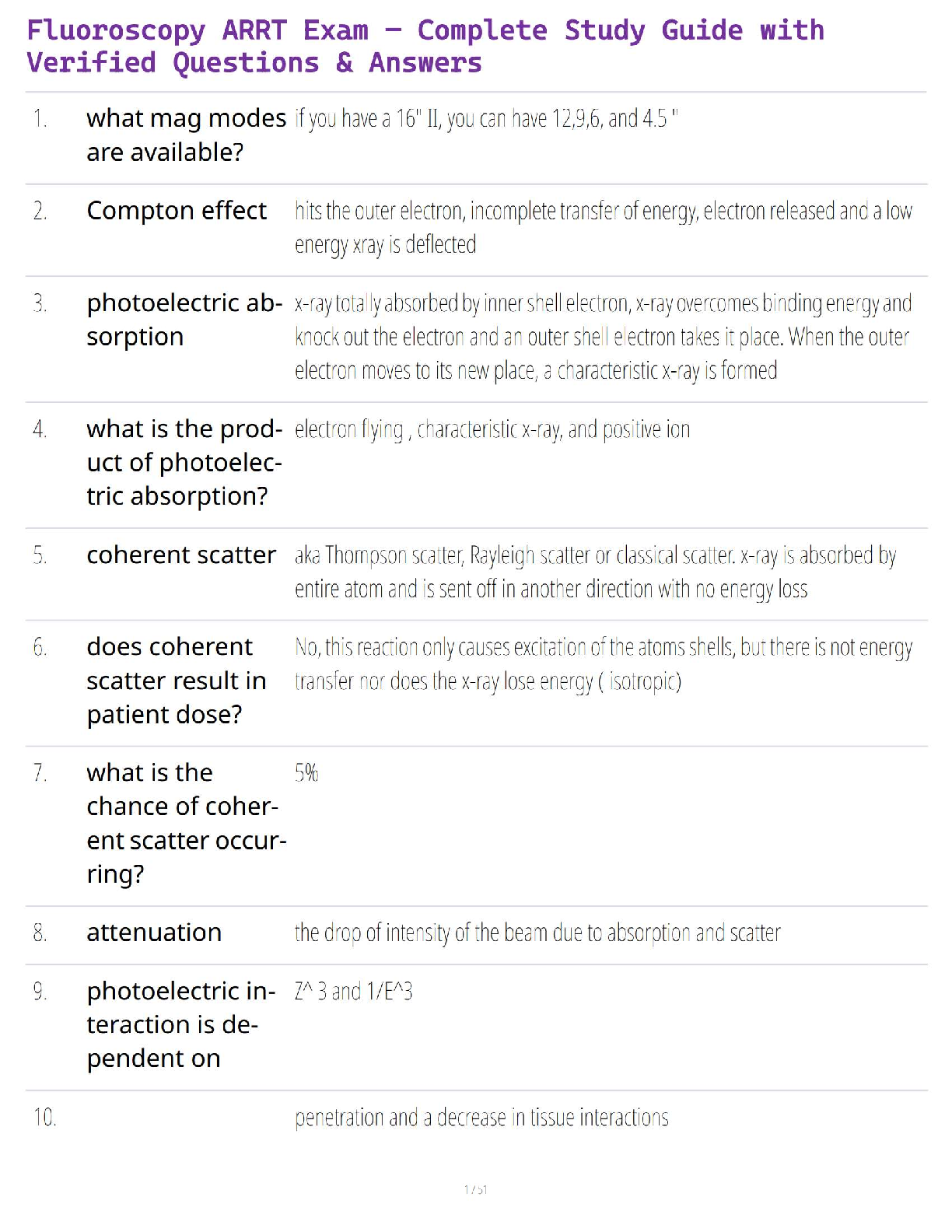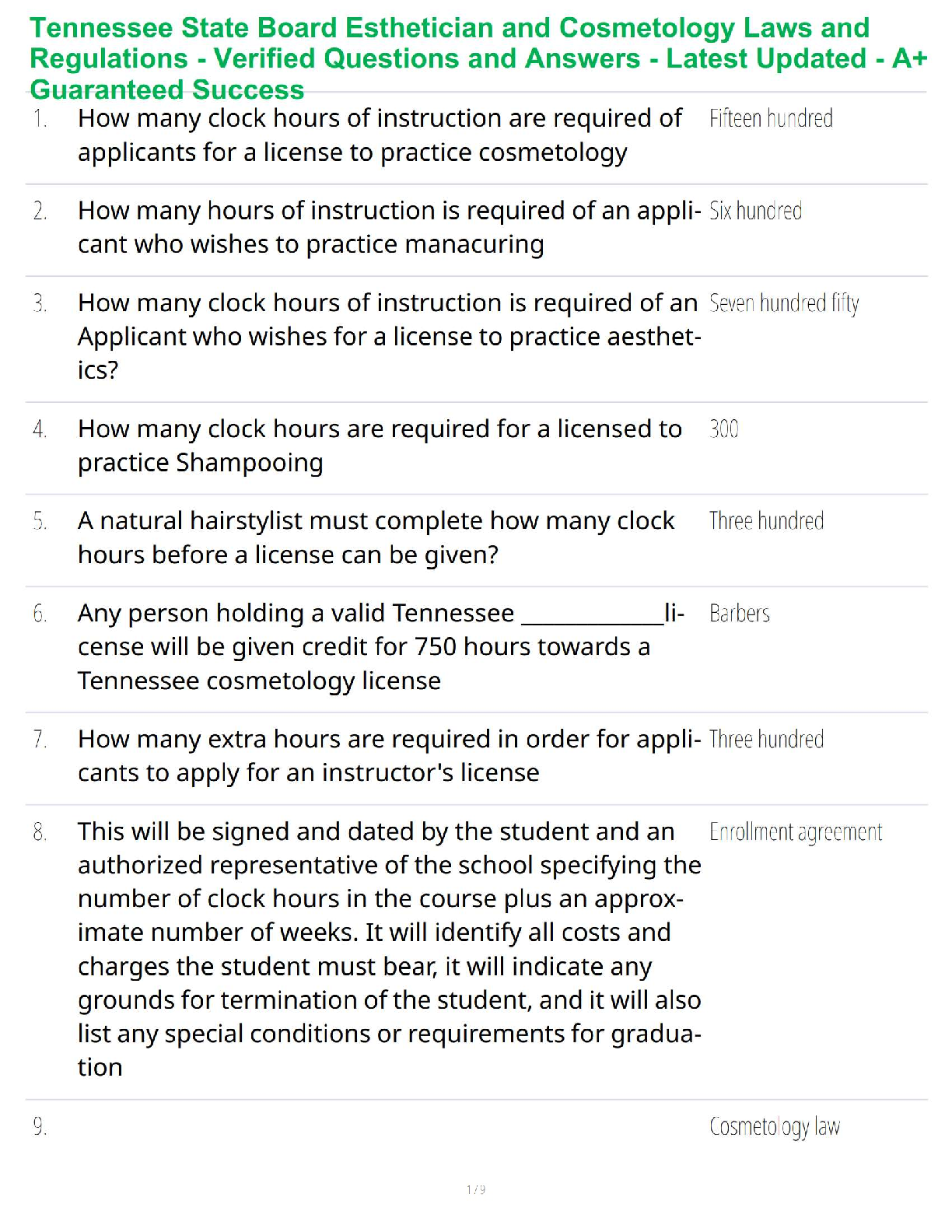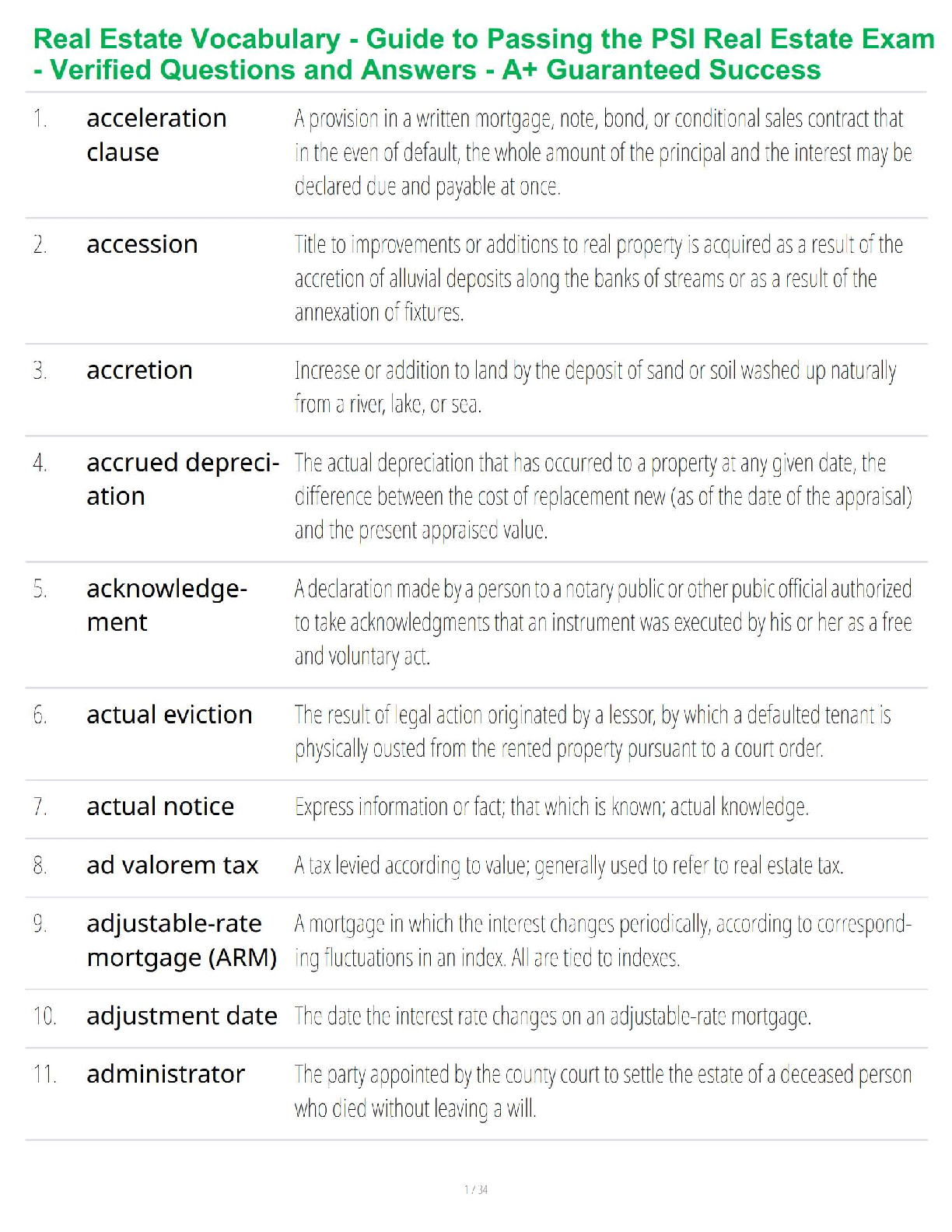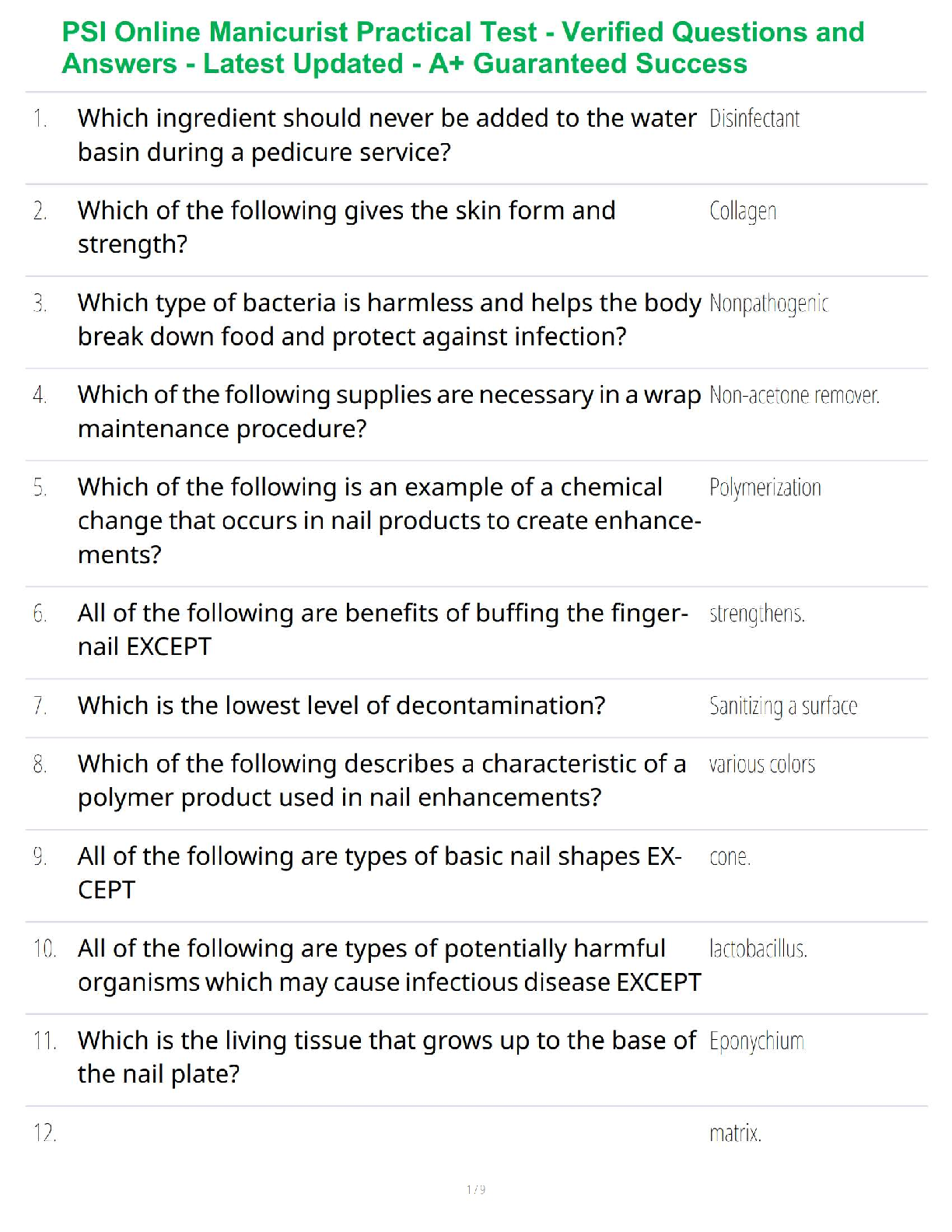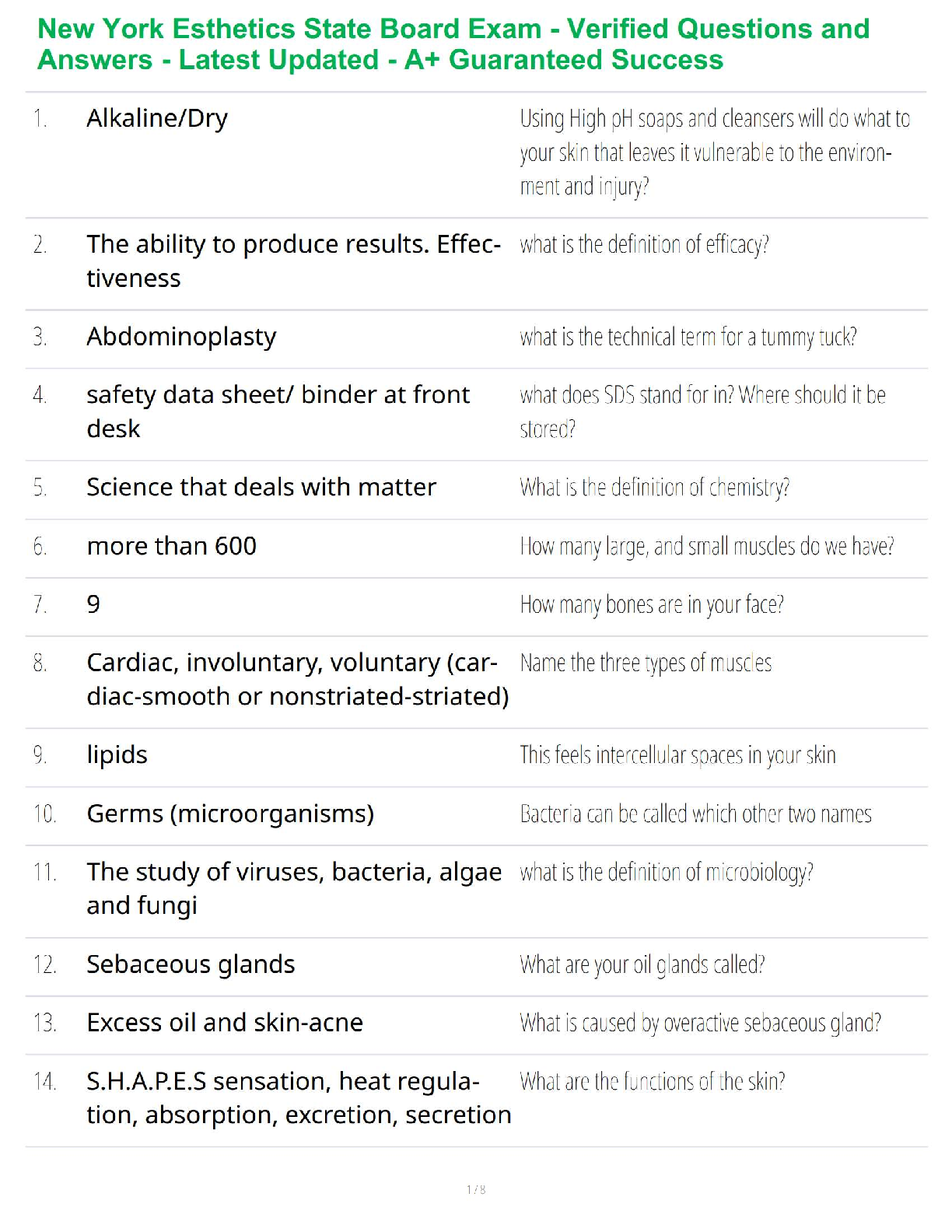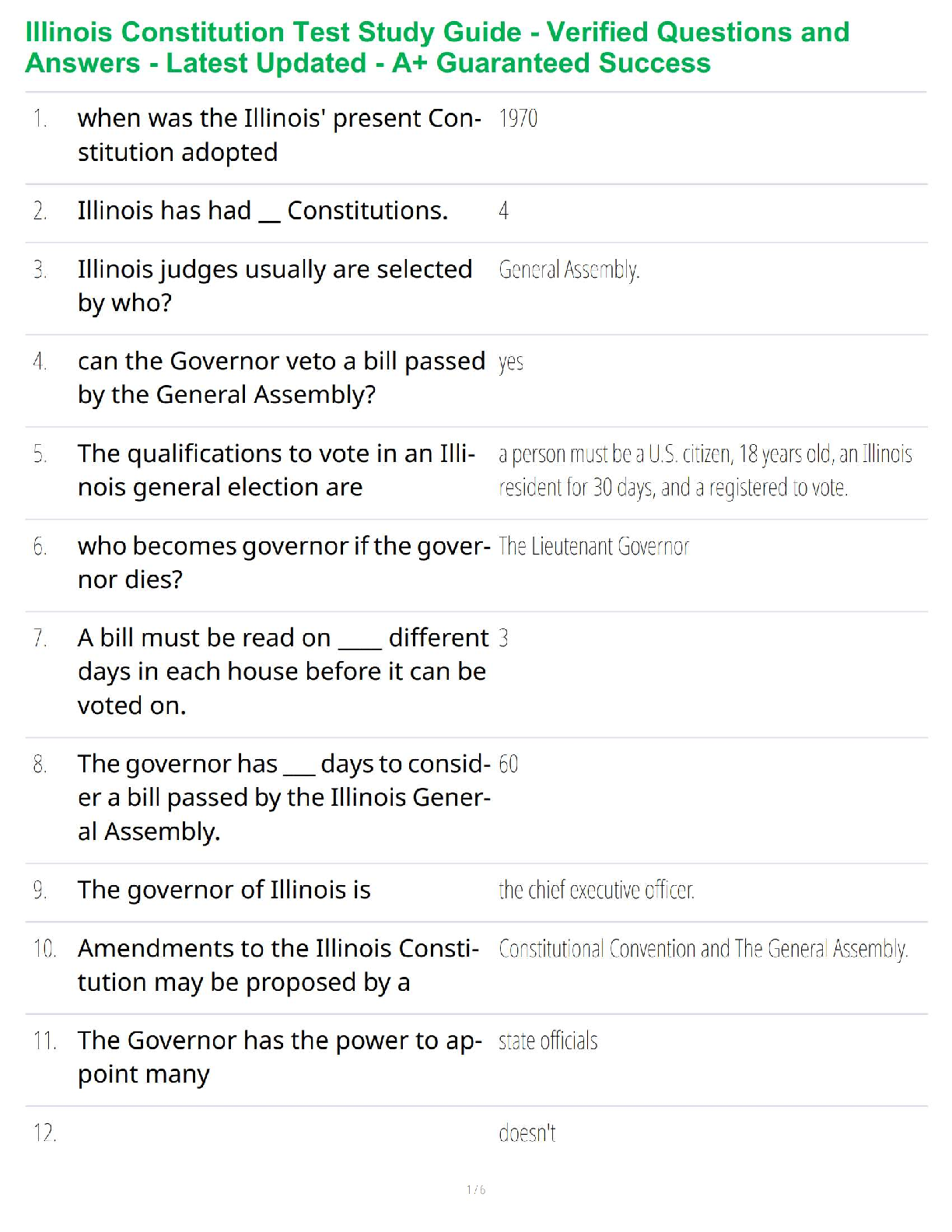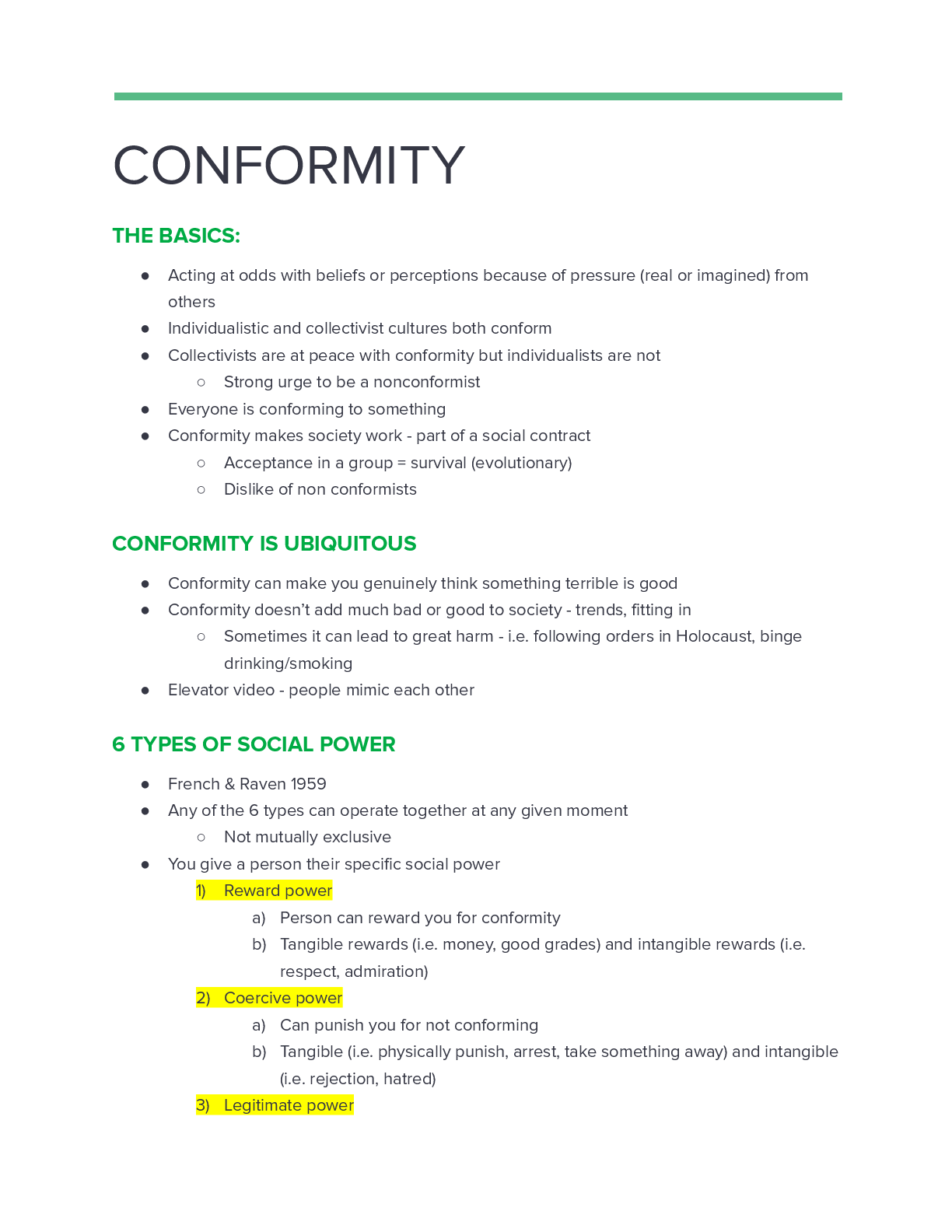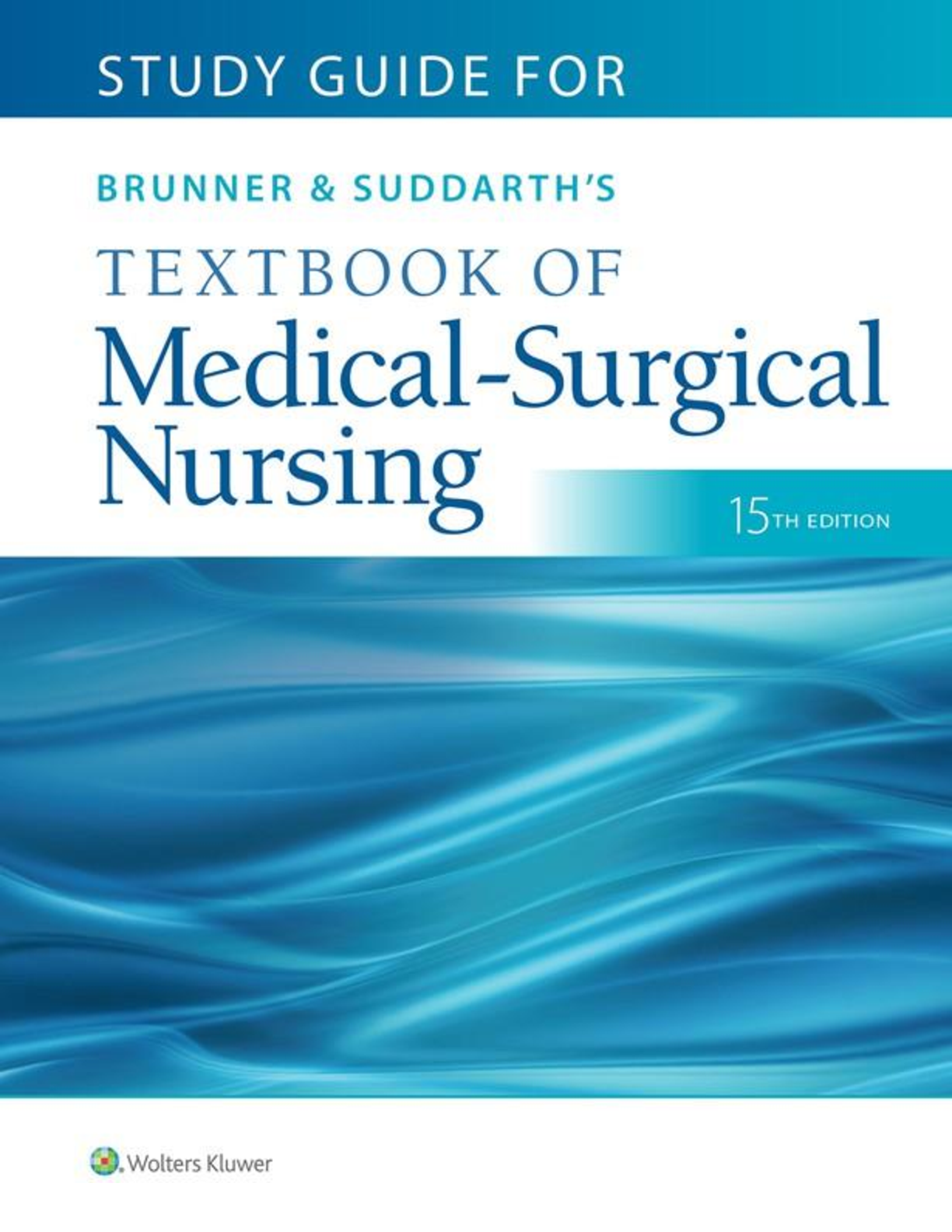Comprehensive Predictor Study Guide
1. Professional Responsibilities: Durable Power of Attorney for Health Care
A. A durable power of attorney for health care/health care proxy is a legal document that desi
...
Comprehensive Predictor Study Guide
1. Professional Responsibilities: Durable Power of Attorney for Health Care
A. A durable power of attorney for health care/health care proxy is a legal document that designates a health care surrogate, who is an individual authorized to make healthcare decisions for a client who is unable.
B. The person who serves in the role of health care surrogate to make decisions for the client should be very familiar with the client’s wishes.
C. Living wills can be difficult to interpret, especially in the face of unexpected circumstances. A durable power of attorney for health care, as an adjunct to a living will, can be a more effective way of ensuring that the client’s decisions about health care are honored.
2. Professional Responsibilities: Educating Staff About Client Advocacy
A. As advocates, nurses must ensure that clients are informed of their rights and have adequate information on which to base health care decisions.
B. Nurses must be careful to assist clients with making health care decisions and not direct or control their decisions.
C. Nurses mediate on the client’s behalf when the actions of others are not in the client’s best interest or changes need to be made in the plan of care.
D. Do not need a lawyer
E. Situations in which nurses might need to advocate
o End‑of‑life decisions
o Access to health care
o Protection of client privacy
o Informed consent
o Substandard practice
NURSING ROLE IN ADVANCE DIRECTIVES
A. Providing written information regarding advance directives
B. Documenting the client’s advance directives status
C. Ensuring that advance directives are current and reflective of the client’s current decisions
D. Recognizing that the client’s choice takes priority when there is a conflict between the client and family, or between the client and the provider
E. Informing all members of the health care team of the client’s advance directives
3. Professional responsibilities: Client Advocacy
4. Cultural and Spiritual Nursing Care: Working With an Interpreter
A. Use only a facility‑approved medical interpreter. Do not use the client’s family or friends, or a nondesignated employee to interpret.
B. Inform the interpreter about the reason for and the type of questions that will be asked, the expected response (brief or detailed), and with whom to converse.
C. Allow time for the interpreter and the family to be introduced and become acquainted before starting the interview.
D. Ask one question at a time
E. Direct the questions to the family, not to the interpreter.
Use lay terminology
F. Do not interrupt the interpreter, the client, or the family as they talk.
Following the interview, ask the interpreter for any additional thoughts about the interview and the client’s and family’s responses, both verbal and nonverbal.
5. Overview of Community Health Nursing: Adhering to Ethical Principals
[Show More]




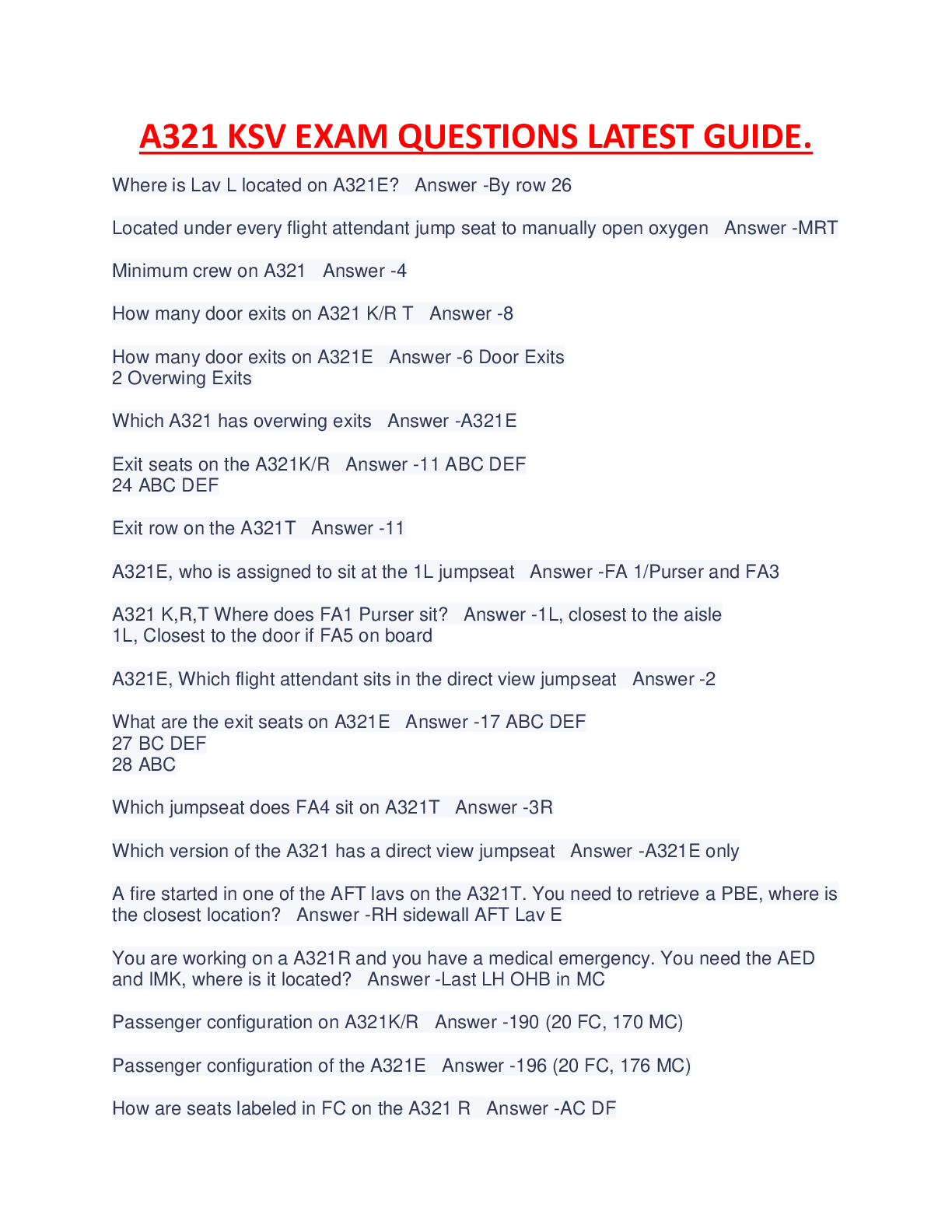




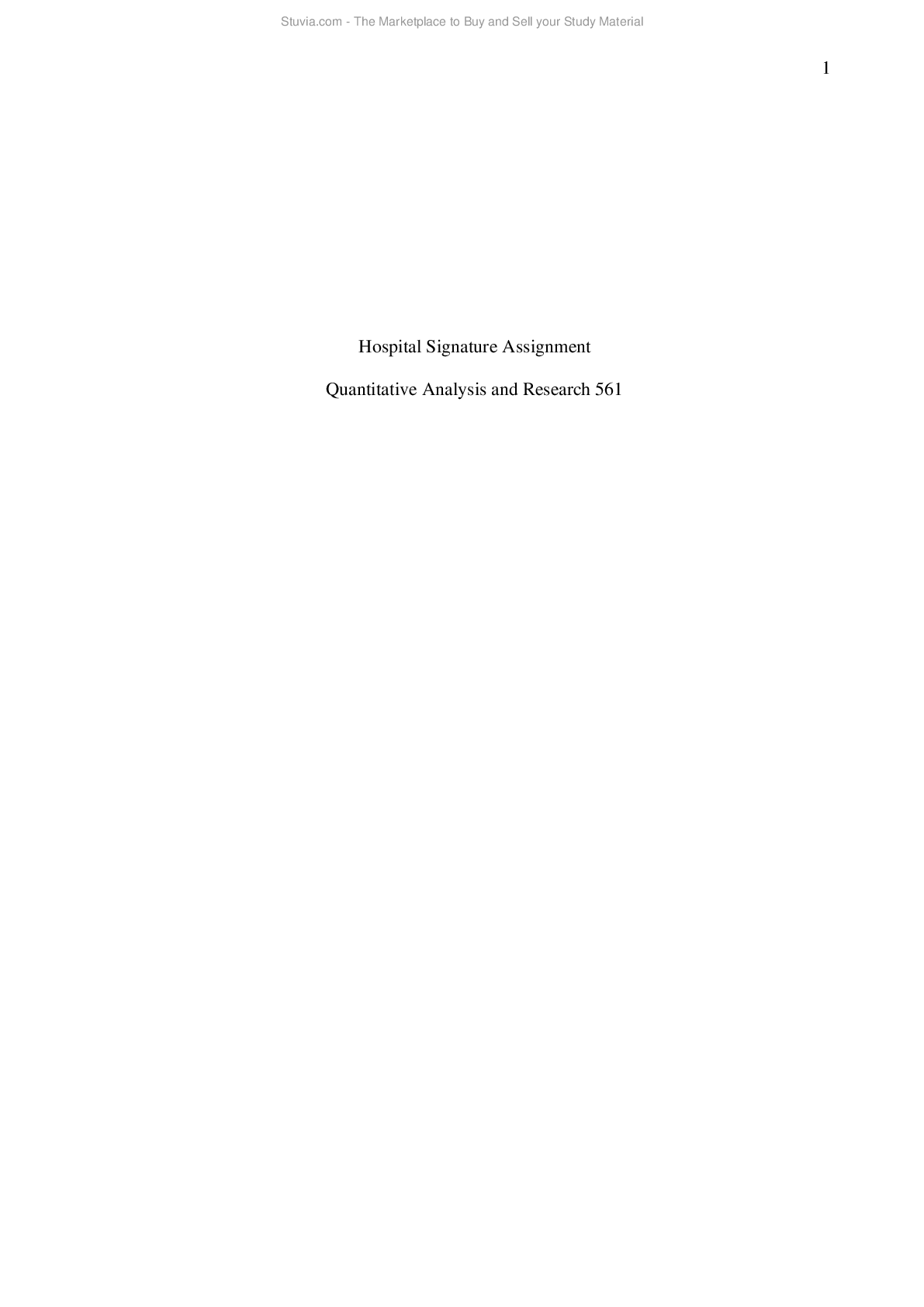

_removed.png)









